Best Substrate For Ball Pythons
January 22, 2021
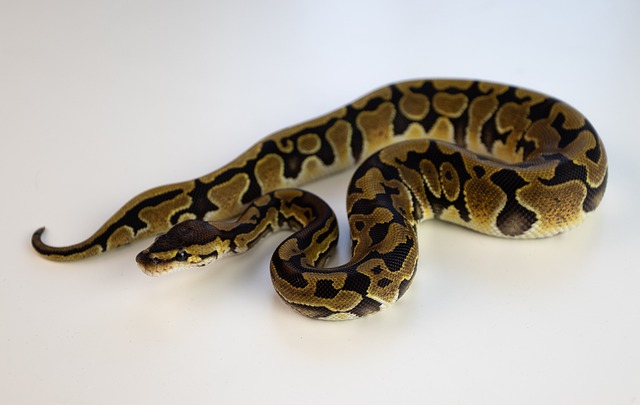
Choosing the Best Bedding for Ball Pythons
Substrate is what is used to make up the flooring of your ball python’s enclosure, similar to how we use carpet or tile in our homes. You may be wondering why the type of substrate you put in your ball python’s enclosure matters, after all, the type of flooring we have in our homes usually doesn’t affect our well being. The type of substrate matters because ball pythons are delicate creatures that rely on their surroundings to provide them with warmth and humidity.
Best Ball Python Substrate Options
Not all substrates are created equal when it comes to providing your reptile with their necessities. There are substrates that are better suited for desert dwelling reptiles, and others that are better suited for tropical reptiles. Ball pythons in particular require fairly high humidity levels (between 50-70%). Because of this, when you’re looking at substrates, it is important to choose one that is both non-toxic and equipped to hold in humidity. Here's a list of excellent ball python substrates.
Coconut husk
Coconut husk is an excellent substrate choice or ball pythons. In fact, many ball python keepers, including myself, swear by it and only use it. Why is coconut husk the best substrate for ball pythons? Well for one, it is great at holding in humidity, and it rarely produces mold. Another benefit to coconut husk, is that it allows your ball python to burrow. Though they may not burrow often, they will enjoy it on occasion. It can be a little difficult to find in stores, but its available here on Chewy for cheap. I recommend purchasing the 8 quart bundle of 3 since its more husk for the dollar. The 24 quart bundle should be enough for a juvenile ball python tank, but you will want to purchase more if you have a larger enclosure.
Cypress Mulch
Cypress mulch is another good choice for your ball python’s substrate. This substrate maintains humidity well, and rarely molds. Cypress mulch will also provide your snake with the opportunity of burrowing. Cypress mulch can be found online, as well as in gardening stores. When purchasing cypress mulch, make sure to double check that it is 100% organic cypress mulch. Because this substrate is often used with gardening, some brands may add pesticides and fertilizer to theirs, which will have lethal consequences for your ball python. Here is a good brand on Chewy that is 100% safe for your ball python. This bag is a 24 quart bag, which should be large enough for a small ball python enclosure. If you have an adult ball python, I recommend buying two bags to fill their enclosure.
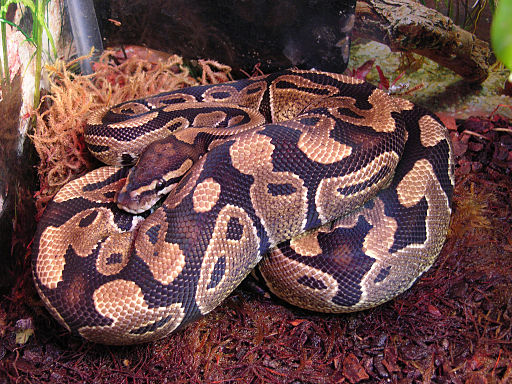
Mediocre Ball Python Substrate Options
These substrates are considered mediocre. This is because they do not do a good job at maintaining humidity, or enriching your ball python’s life. If you choose to use one of these substrates you will have to consistently mist your snake’s enclosure to prevent respiratory infections and stuck shed. They are included on the list of acceptable substrates simply because they are non-toxic and are used by some ball python keepers.
Aspen
Aspen can be found in almost any pet store and is extremely cheap compared to other ball python substrates. This substrate DOES NOT hold in the proper humidity levels for a ball python. You will need to be dedicated to misting your ball pythons enclosure several times a day. While we’re on the topic of humidity, it is important to note that aspen will mold quickly if in a humid environment for too long. If you're struggling to keep humidity in your ball python's tank, I have an article here on ball python humidity that may help. Aspen chips will provide your ball python with the option of burrowing. Aspen is known to be dusty, which can irritate your ball python’s nose.
Coconut Fiber
Coconut fiber, also known as coconut coir is essentially a finer, ground up version of coconut husk. Like the substrates mentioned before, this substrate is excellent at holding in humidity, however, unlike the substrates above, coconut fiber is prone to molding. Of all the substrates discussed, this is the best one for giving your ball python the option of burrowing. This substrate can be found in almost any pet store, as well as online, and is quite a bit cheaper than coconut husk. It can be a pain to deep clean your ball python’s enclosure when using coconut fiber, because the fine particles tend to sift into the cracks and hard to reach places. An issue with coconut fiber is that it can get into your ball python’s heat pits.
Paper Towels
Paper towels are recommended as a quarantine or temporary substrate, not a permanent one. Not only do paper towels hold no humidity, they also will prevent your ball python from burrowing, or having any natural smells. Paper towels are non-toxic and therefore safe for ball pythons, but they provide your ball python with no enrichment. To learn more about how to enrich your ball python’s life, check out this article.
Substrates to Avoid
Unfortunately, some substrates may be advertised as safe for ball pythons, but are in fact dangerous, and sometimes even deadly. These substrates may be made of toxic materials, or have a high risk for impaction. Under no circumstance should any of the following be used for ball pythons.
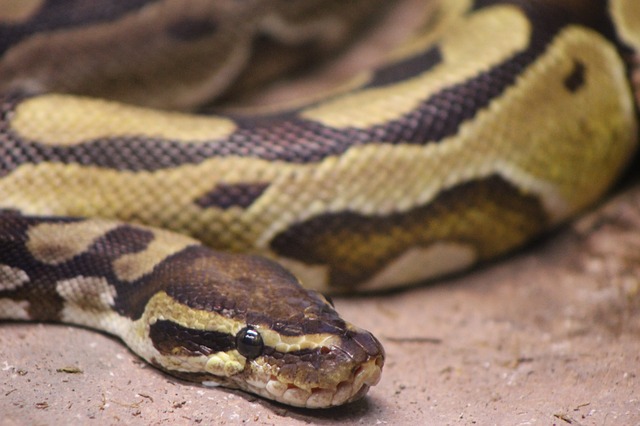
Cedar or Pine
Cedar or pine shavings are sometimes marketed as alternatives to aspen or coconut husk. Though these substrates might look like cheaper or more convenient substrates, they should never be used. Both pine and cedar release oils that are toxic to ball pythons, and all other reptiles.
Sand
Sand is oftentimes sold in pet stores as high quality reptile substrate. This is completely false. Sand is known to cause impaction in reptiles, not to mention, it won’t hold the proper humidity that a ball python requires. Sand is prone to molding quickly when in high humidity. You should never use sand as a substrate for your ball python, and I wouldn't even recommend it as a substrate for desert dwelling reptiles.
Rocks or Gravel
Believe it or not, some people try to house their ball pythons on gravel. Do not make the same mistake they do. Rocks do not make a suitable ball python substrate. They will not hold in humidity, and are extremely dangerous when it comes to impaction.
If you would like to learn more about how to provide your ball python with the best care, check out The Complete Ball Python Care Sheet.
This post contains affiliate links that may pay me a commission when a sale is made. Affiliate commissions help me maintain this website, and I only recommend products that I trust.
Recommended Posts
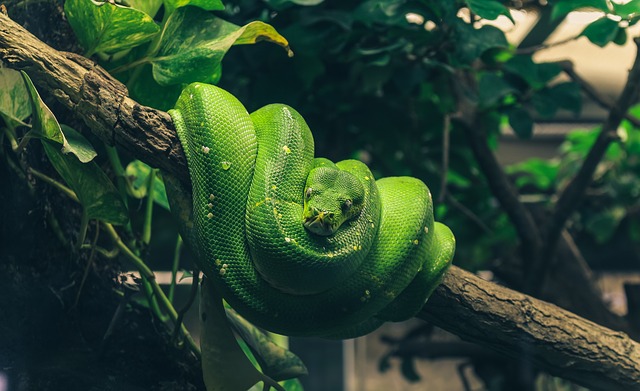
Enrichment For Snakes
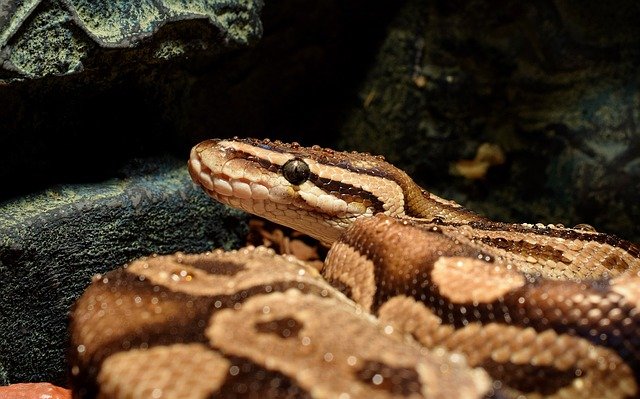
Complete Guide To Increasing Humidity In Ball Python Tanks
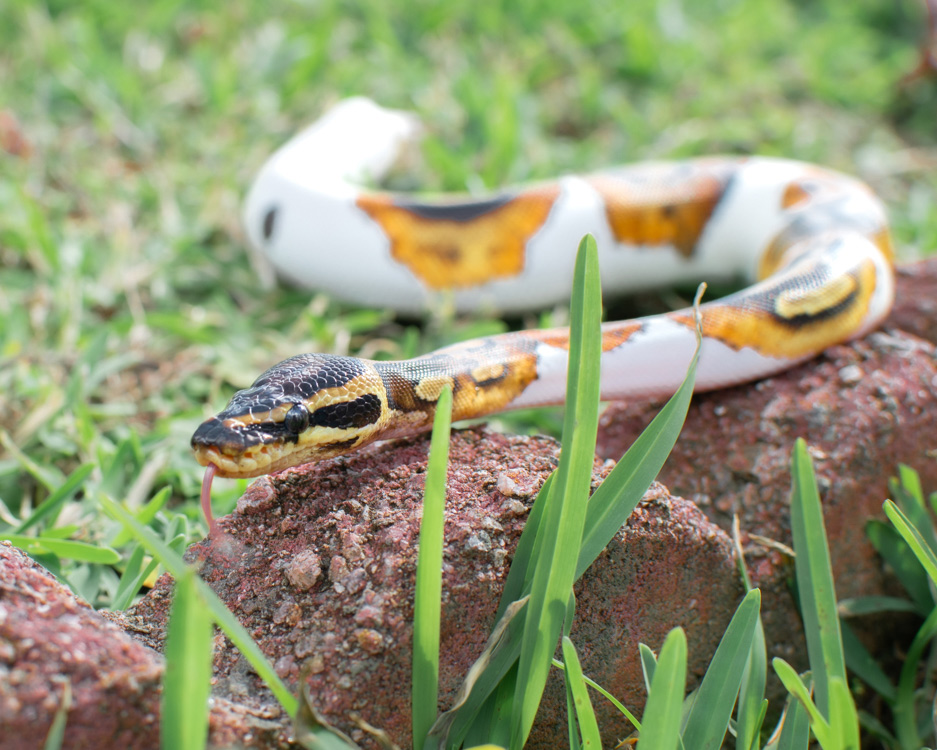
Complete Ball Python Care Sheet




Sending...